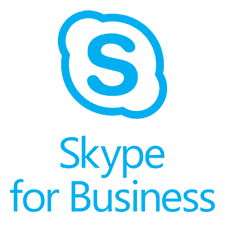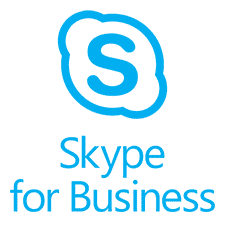Intersection of Contact Centers and AI: A Win for Customers and Agents
In the modern business world, the contact center is the frontline of brand reputation, and customer expectations are higher than ever. They want...
3 min read
![]() CallTower Blog Team
:
Jun 18, 2018 9:33:00 AM
CallTower Blog Team
:
Jun 18, 2018 9:33:00 AM

 Skype for Business is much more than a business-focused repurposing of the famous peer-to-peer communications app it shares its name with.
Skype for Business is much more than a business-focused repurposing of the famous peer-to-peer communications app it shares its name with.
While it shares many features with Skype – user-friendly access to voice, video and IM, for example – Skype for Business also does so much more.
When Microsoft decided to replace its Lync UC platform with Skype for Business, the intention was to create a complete end-to-end enterprise class communications and collaboration solution. A key part of that was to offer a flexible range of deployment options covering cloud and on-premises so every potential customer could use Skype for Business in a way that best suited its operations and objectives.
This level of choice is great for the end user, but it also requires an understanding of the different options so the right decision can be made. In this article, we compare the Skype for Business editions available with the key facts you need to know when making your choice.
Skype for Business Server Edition is the on-premises software solution. Part of the broader Office software suite which includes Office programs, Exchange Server and Sharepoint Server, it was the direct replacement of Lync Server.
Running Skype for Business Server Edition requires customers to buy the software up front and then configure and install it on their IT network. These can be variously viewed as advantages or disadvantages, depending on your viewpoint. Many businesses are moving away from on-premises solutions to avoid high capital expenditure and what is widely regarded as a higher total cost of ownership (TCO) compared to hosted cloud services.
It is true that configuring a server edition on your IT network can be complex, especially if you are setting it up across multiple sites in a large organization. Outright ownership also adds ongoing costs in maintenance and repair. But many businesses, especially larger enterprises, still prefer the level of control they get from outright ownership. The added expense and need for full time IT support are viewed as worth it.
Originally, Skype for Business Server edition was a better option for large organizations because it provided full access to enterprise-grade telephony and collaboration features. This has not been so relevant since Microsoft added the same features to its cloud service with the Office 365 E5 Enterprise release.
Still, many enterprises opt for Server Edition because of the additional control they have over things like system security and timing of updates. For example, with a hosted service, you are at the mercy of the provider as to when updates and upgrades are run. This can become very inconvenient if it happens to coincide with a time when you need full access and functionality. Also, running your own on-premises solution is viewed as the better option if you wish to customize how Skype for Business runs on your network or integrates with other IT systems you use.
Skype for Business Online is a cloud-based application available as part of the Office 365 suite. Office 365 is a subscription-based service, with different plans offering access to different bundles of features. Licenses are sold per user.
As a cloud application, there is no need to purchase software up front as with the server edition. Capital expenditure is therefore replaced by the on-going operational expenditure of paying the subscription, although there is an annual commitment on licenses. There is no need for configuration and set up – Skype for Business Online is available and ready to go as soon as you have an Office 365 log in. All maintenance and updates are handled by Microsoft, lowering total cost of ownership.
When Skype for Business was first launched, only the server edition included PBX and enterprise-level conferencing capabilities. But a Cloud PBX has now been added to the Office 365 enterprise plans, along with Skype Meeting Broadcast, which allows broadcast of webinars of up to 10,000 people. All Skype for Business Online subscriptions support web and video conferencing for up to 250 people.
The main advantages of Skype for Business Online are lower costs, ease of use and flexibility. Small businesses can access enterprise-class voice, chat and collaboration for just a few dollars per user per month. With Cloud PBX and Exchange Online, it offers the convenience of phone and email all in a single interface. And as a cloud application, you can use it on any device, wherever there is an internet connection.
For more information on Skype for Business, both Online and Server Editions, please contact CallTower about a free demonstration to see which edition would work better for your organization:
In the modern business world, the contact center is the frontline of brand reputation, and customer expectations are higher than ever. They want...
Choosing the right contact center solution can feel like a monumental task. The platform you select is like the central nervous system of your...
1 min read
In the rapidly changing world of modern business, having the right Unified Communications as a Service (UCaaS) and cloud-calling services can make...